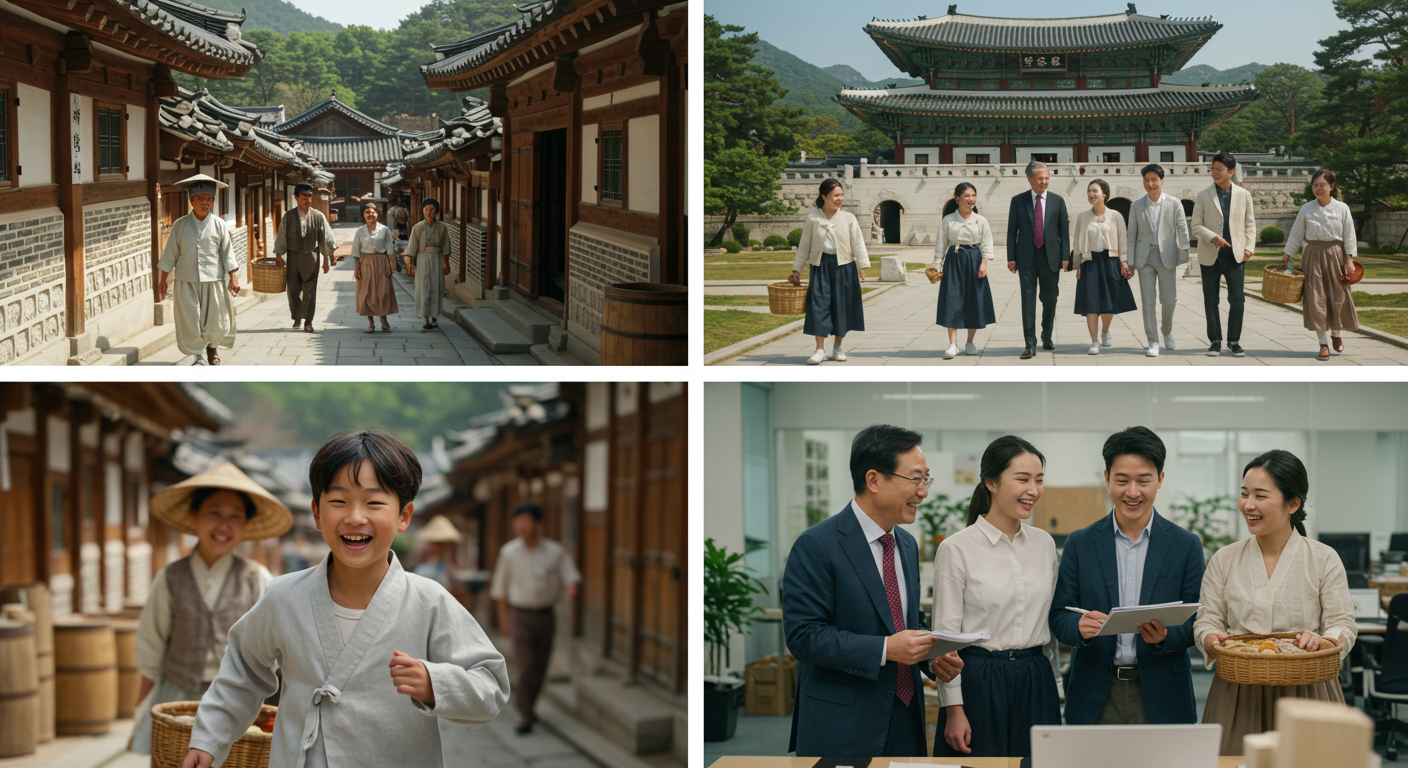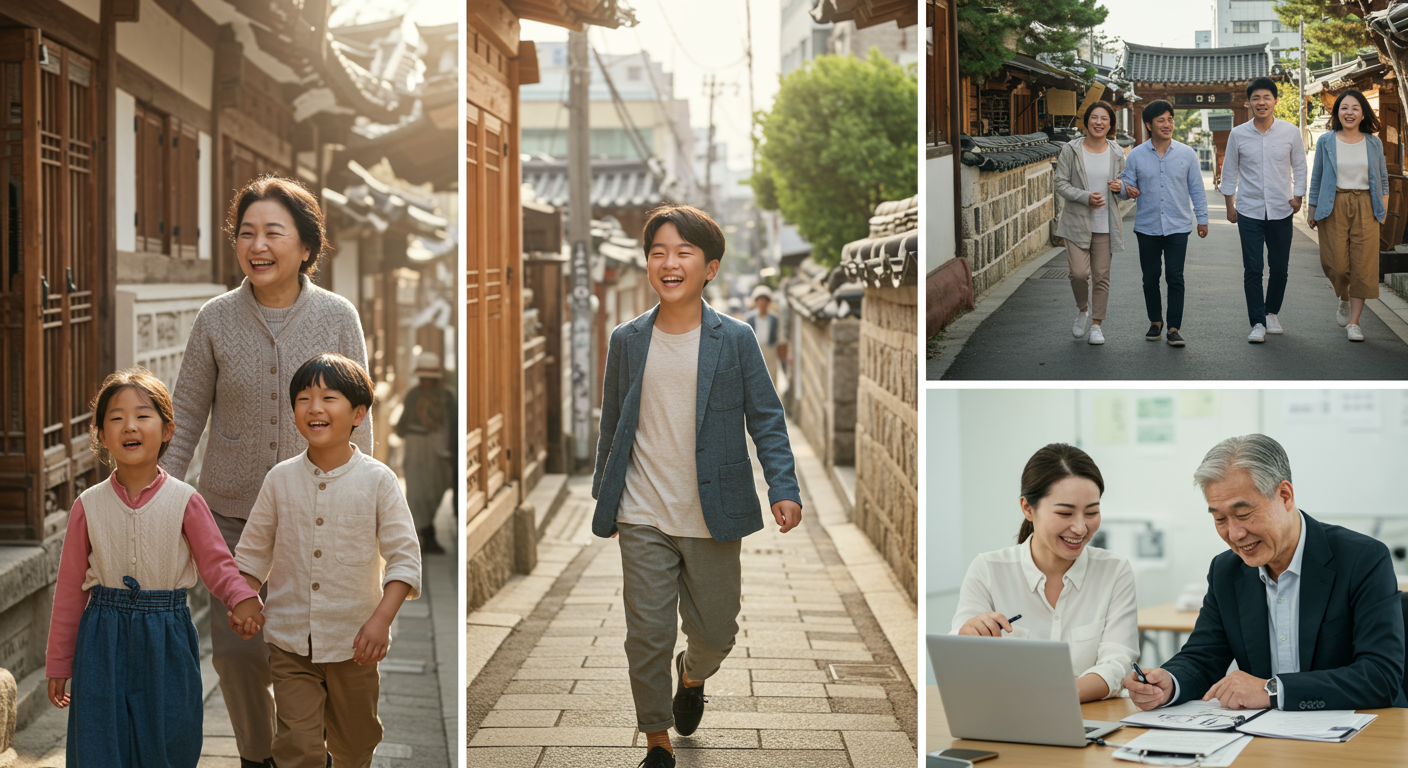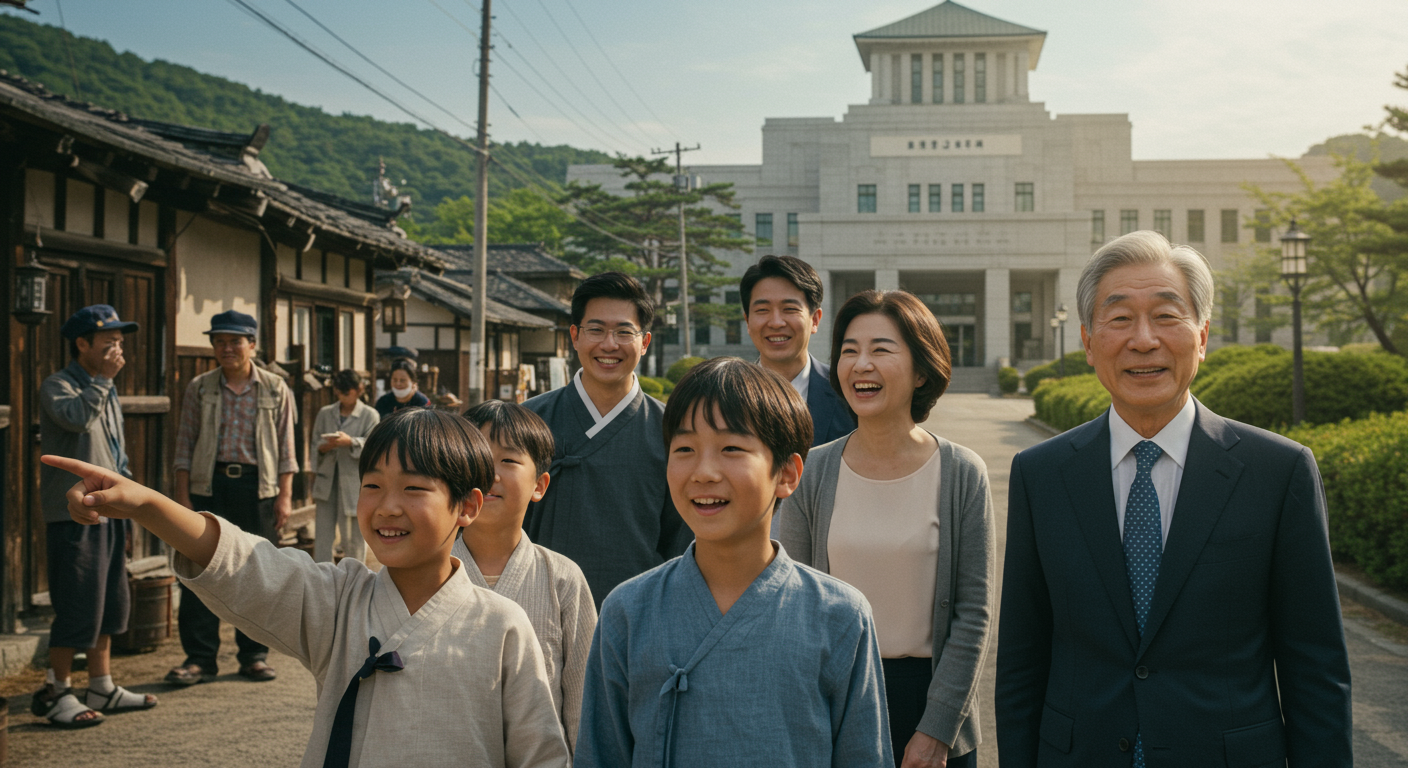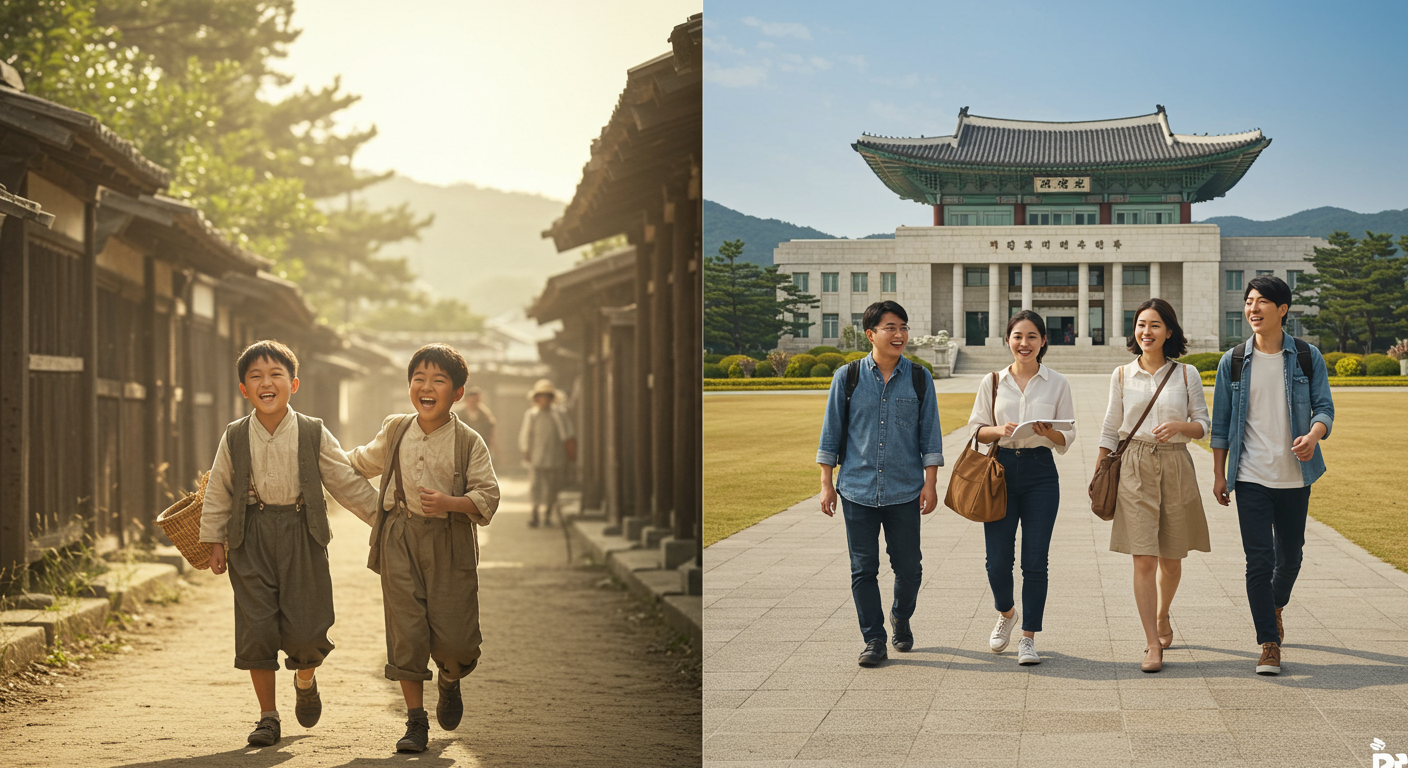Ra Jong-yil: The Quiet Architect of Modern Korea's Democratic Journey
Ra Jong-yil: The Quiet Architect of Modern Korea's Democratic Journey
Ever wondered about the hidden figures who quietly shaped the most pivotal moments in a nation's history? The ones whose wisdom steered the ship, even if their names aren't always on the front page?
Recently, I had the incredible opportunity to dive deep into the life and insights of Dr. Ra Jong-yil, a true giant in modern Korean politics. He's a scholar, a diplomat, and someone who's lived through some of the most dramatic shifts in Korea's recent past. We recorded this conversation right in his Seoul home, and honestly, it felt like sitting down with living history itself.
Table of Contents
Growing Up Under Occupation: A Nation's Dawn
Born in 1940, Ra Jong-yil (라종일, Ra Jong-yil) literally entered the world as Korea endured the height of Japanese occupation. Can you even imagine? Living through those times, feeling the weight of colonial rule, and then witnessing the nation's tumultuous liberation and subsequent division. It’s a perspective that few possess, and it profoundly shaped his understanding of the world and his country.
He didn't just read about these moments in history books; he lived them. That personal journey gives his insights a depth that academic analyses often miss. It struck me, listening to him, how much the spirit of that era, both its hardships and its resilience, instilled a unique sense of purpose in his generation.
 Description: "A sepia-toned illustration showing a young Korean boy looking out a window at a Japanese colonial-era street, with a sense of quiet resilience and hope. The atmosphere is somber but with a subtle hint of emerging light, in a realistic, muted color palette."
Description: "A sepia-toned illustration showing a young Korean boy looking out a window at a Japanese colonial-era street, with a sense of quiet resilience and hope. The atmosphere is somber but with a subtle hint of emerging light, in a realistic, muted color palette."
The Legacy of Baekbong Na Yong-kyun: A Father's Vision
What's truly fascinating is Ra Jong-yil's familial connection to Korea's independence movement. His father, Baekbong Na Yong-kyun (백봉 나용균, Na Yong-kyun), was deeply involved with the Provisional Government in Shanghai (상해 임시정부), working alongside legendary figures like Syngman Rhee (이승만, Syngman Rhee), Kim Ku (김구, Kim Ku), and Ahn Chang Ho (안창호, Ahn Chang Ho). Imagine growing up with those stories, that lineage of unwavering dedication to nation-building.
It's not just a historical footnote; it’s a living part of his identity. This direct link to the architects of modern Korea gave him a unique vantage point, a kind of inherited wisdom, that few contemporary figures could ever claim. It’s what allowed him to not just observe history, but to help shape it.
Forging Liberal Democracy: Korea's Path from Turmoil
Korea's journey to liberal democracy wasn't linear, nor was it easy. It was a path fraught with struggle, sacrifice, and pivotal decisions. Ra Jong-yil's involvement wasn't just as an observer but as an active participant and intellectual guide. He understood the theoretical underpinnings of liberal democracy while also grappling with the messy realities of implementing it in a nation scarred by war and division.
He really emphasized the balance between the idealism of democracy and the practical challenges of governance. It’s a subtle yet profound distinction that defines effective leadership, don't you think? His perspective offers crucial insights into how a nation navigates its most challenging political landscapes.
 Description: "An artistic rendering of the South Korean National Assembly building bathed in a warm, hopeful light, with a diverse group of people (men and women of varying ages) standing together in front, symbolizing the collective effort towards democracy. The style is a modern, slightly abstract illustration."
Description: "An artistic rendering of the South Korean National Assembly building bathed in a warm, hopeful light, with a diverse group of people (men and women of varying ages) standing together in front, symbolizing the collective effort towards democracy. The style is a modern, slightly abstract illustration."
Mentoring Presidents: Kim Dae-jung's Enduring Influence
Perhaps one of the most compelling aspects of Ra Jong-yil’s story is his mentorship of two pivotal presidents: Kim Dae-jung (김대중, Kim Dae-jung) and Roh Moo-hyun (노무현, Roh Moo-hyun). His relationship with Kim Dae-jung, in particular, was fascinating. He helped guide this towering figure, a man who survived so much to bring democracy to Korea.
He later served under President Kim Dae-jung as Ambassador of the Republic of Korea to the United Kingdom (2001 - 2003). To be on the inside, advising and then representing the nation at such a high level during a transformative period—it's just incredible. It speaks volumes about the trust and respect these leaders had for his intellect and integrity.
 Description: "A dignified portrait-style photograph of an older, distinguished Asian man (Ra Jong-yil) in a suit, shaking hands with a younger man (Kim Dae-jung) in a formal setting, possibly an office, conveying a sense of mentorship and shared purpose. The lighting is soft, emphasizing wisdom and experience."
Description: "A dignified portrait-style photograph of an older, distinguished Asian man (Ra Jong-yil) in a suit, shaking hands with a younger man (Kim Dae-jung) in a formal setting, possibly an office, conveying a sense of mentorship and shared purpose. The lighting is soft, emphasizing wisdom and experience."
The Roh Moo-hyun Years: A New Chapter for Korea
His influence didn't stop there. Ra Jong-yil also served under President Roh Moo-hyun as Ambassador of the Republic of Korea to Japan (2004-2007). This period was crucial for South Korea's foreign policy, especially with its key neighbors.
The very fact that two different presidents, from distinct political backgrounds, sought his counsel and entrusted him with such high-level diplomatic roles truly highlights his non-partisan appeal and profound wisdom. It’s a testament to his unique ability to bridge divides and offer objective insights, something sorely needed in today's world, don't you agree?
Beyond Politics: Reflections on Compassion, Books, and Myths
What struck me most wasn't just his political acumen, but his philosophical depth. We spoke about compassion, the profound impact of books, and even the enduring power of myths in shaping a nation's psyche. It's rare to find someone who has navigated the highest echelons of power with such an introspective and humanistic view.
He shared insights that felt both deeply personal and universally applicable. It was a stark reminder that true leadership isn't just about policies and power, but about understanding the human condition, learning from the past, and having a compassionate vision for the future.
For more on his profound work, you can explore The Baekbong Political Culture Research Institute at bbi.or.kr. And if you're curious about North Korea, he even contributed to the book "Inside North Korea's Theocracy". You can also find more about him on Wikipedia.
 Description: "An elderly scholar, Ra Jong-yil, sits in a cozy study, surrounded by overflowing bookshelves, holding an open book and looking thoughtful. Sunlight streams through a window, illuminating dust motes and creating a warm, contemplative atmosphere. The style is realistic, emphasizing detail and texture."
Description: "An elderly scholar, Ra Jong-yil, sits in a cozy study, surrounded by overflowing bookshelves, holding an open book and looking thoughtful. Sunlight streams through a window, illuminating dust motes and creating a warm, contemplative atmosphere. The style is realistic, emphasizing detail and texture."
Frequently Asked Questions (FAQs)
Dr. Ra Jong-yil is a prominent Korean scholar, diplomat, and political figure born in 1940 during the Japanese occupation. He is significant for his direct involvement in shaping modern Korean politics, serving as a mentor to presidents Kim Dae-jung and Roh Moo-hyun, and holding key ambassadorial roles, particularly to the UK and Japan.
Baekbong Na Yong-kyun was actively involved with the Provisional Government in Shanghai alongside figures like Syngman Rhee and Kim Ku. This direct family lineage to the independence movement provided Ra Jong-yil with a unique, firsthand understanding of Korea's struggles and aspirations, profoundly shaping his perspective on nation-building and governance.
While not a frontline activist, Ra Jong-yil served as a critical advisor and mentor to two presidents, Kim Dae-jung and Roh Moo-hyun, who were instrumental in ushering in Korea's democratic era. His insights and counsel helped navigate complex political landscapes and implement democratic principles within the government.
You can find more information about his work through The Baekbong Political Culture Research Institute at bbi.or.kr. He also contributed to the book "Inside North Korea's Theocracy" and has a detailed profile on Wikipedia. Additionally, you can listen to the full podcast conversation for a deeper dive into his insights.
This blog post is inspired by the podcast "Korea Deconstructed" with David A. Tizzard.
Listen to the full episode on Ra Jong-yil: Korea Deconstructed with Ra Jong-yil
Subscribe to the channel: @DavidTizzard/videos
Listen on iTunes: Apple Podcasts
Listen on Spotify: Spotify Podcasts
Join Patreon to support: Patreon
© 2024 Your Blog Name. All rights reserved.